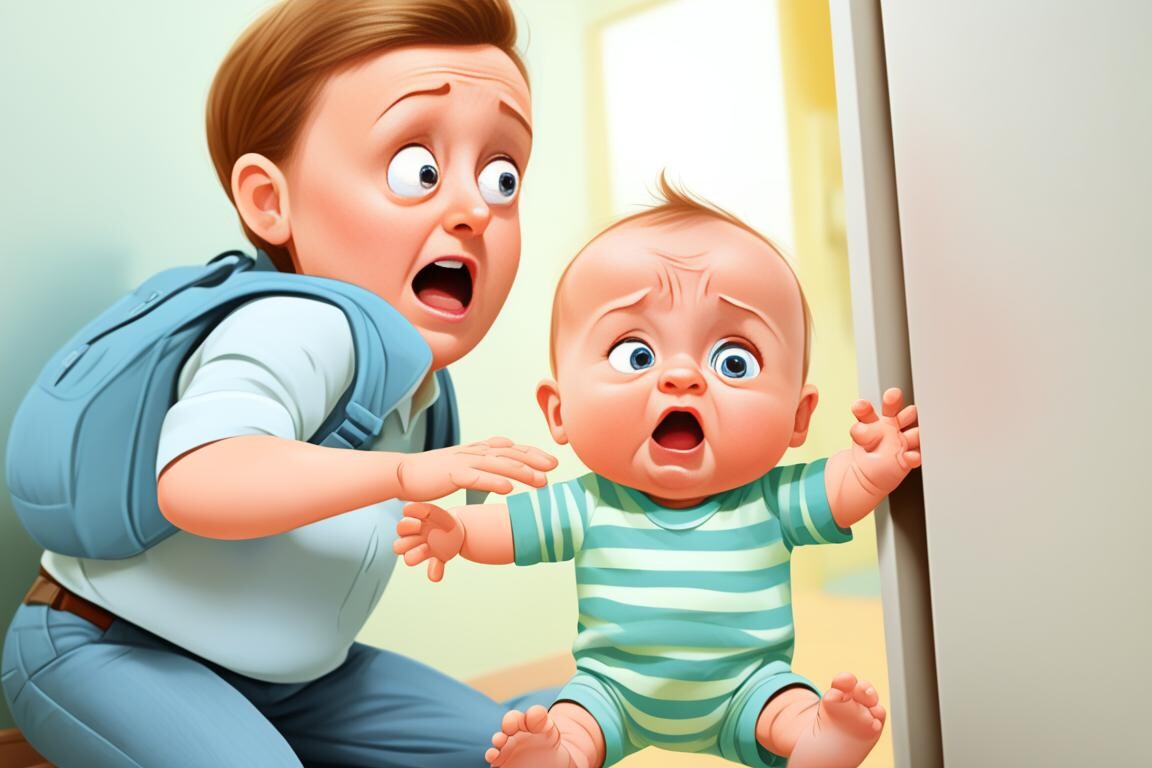Separation anxiety can really affect your daily life and how you connect with others. But, you can handle this anxiety with the right strategies. This article will give you tips and techniques to deal with separation anxiety and find peace.
Understanding separation anxiety is key to beating it. By knowing what causes it and spotting its signs, you can find ways to cope. Using practical strategies, like quick goodbyes and staying consistent, can really help reduce the stress of being apart.
Also, remember that anxiety is just for now, and keeping busy can help. Getting support from family or friends, or joining a group, can make you feel part of a community. This can make you feel less alone in your struggles.
Separation anxiety affects both adults and kids, but the ways to handle it are similar. By understanding the special challenges each group faces and using targeted solutions, you can improve your relationship with being apart. This leads to better emotional health overall.
Table of Contents
ToggleUnderstanding Separation Anxiety
Separation anxiety is a common feeling when someone is away from a loved one, like a spouse, partner, child, or caregiver. It’s often seen in kids but can happen to adults too. Knowing what causes it and spotting its signs is key to dealing with it.
What is Separation Anxiety?
Separation anxiety is a type of anxiety that makes someone worry too much about being away from someone they feel close to. It can cause many physical and emotional signs. This can really change how someone lives their life and their relationships.
Signs of Separation Anxiety in Adults
It’s important to know the signs of separation anxiety in adults. Some common symptoms are:
- Constant worry about something bad happening when separated from a loved one
- Reluctance or refusal to spend time away from someone close
- Difficulty concentrating or focusing on tasks when separated
- Feelings of nervousness, restlessness, or panic when apart from a loved one
- Physical symptoms such as nausea, headaches, or trouble sleeping
Understanding separation anxiety and its signs helps people take steps to overcome it. This can make them feel better overall.
Identifying Triggers and Challenging Negative Thoughts
Understanding what makes your separation anxiety worse is key to getting better. By knowing what triggers your anxiety, you can find ways to deal with it. For instance, you might feel more anxious when leaving for work or when your partner is away on a trip. Figuring out these triggers helps you start to challenge negative thoughts and think more realistically.
Cognitive behavioral therapy (CBT) is a great way to change negative thought patterns linked to separation anxiety. It helps you spot and question the irrational thoughts that make you anxious. These thoughts might be things like “Something terrible will happen when I’m away from my loved ones.” By thinking more positively, you can better handle your separation anxiety.

It’s tough to find and challenge negative thoughts, but it’s vital for beating separation anxiety. With effort and practice, you can learn to control your anxiety and take back control of your life.
How to deal with separation anxiety
Create Quick Goodbye Rituals
Creating quick, consistent goodbye rituals can make parting ways easier. It could be a special handshake, triple kisses, or giving a comforting item. These small routines build trust and confidence in your child or partner’s ability to handle being apart.
Be Consistent and Keep Promises
Being consistent with your schedule and keeping promises is key. A predictable routine and sticking to your word reduces uncertainty and anxiety. [https://drchandrilchugh.com/understanding-autism-spectrum-disorder-and-how-to-get-help-autism-treatment-center-dr-chandril-chugh/]
By being reliable and secure, you ease the distress of being apart. Remember, the right strategies offer structure, comfort, and clear reunification plans. With patience and effort, your loved one can overcome separation anxiety and become more resilient.
Coping Strategies for Separation Anxiety
Dealing with separation anxiety can be tough, but there are ways to help. Remember, the anxiety you feel is just for now and will go away. One important step is to understand that your anxiety is normal and okay, not a sign of weakness or shame.
Recognize Anxiety is Temporary
When you feel anxious about being apart, take a breath and remember this feeling won’t last. Anxiety is normal and it’s just a short-term feeling. Knowing it will pass helps you deal with it better.
Keep Yourself Busy
Keeping busy can really help with separation anxiety. Do things you like, like hobbies, exercise, or hang out with loved ones. Focusing on something good keeps your mind off the anxiety.
Getting over separation anxiety takes time and effort. Be kind to yourself and get help from a mental health expert if you need it. With the right help and strategies, you can handle your anxiety and live a happy life.

Seeking Support and Professional Help
If your separation anxiety doesn’t go away or gets worse, it’s time to get help. You might want to join a support group or see a therapist. This can help you find ways to deal with your feelings.
Join a Support Group
Talking to people who know what you’re going through can really help. Joining a support group lets you share your feelings and get advice. You can learn how others have coped with separation anxiety.
- Look for local or online groups focused on separation anxiety
- Join in group talks and share your own stories and tips
- Find resources for separation anxiety in the group to help you better understand and manage it
You don’t have to deal with separation anxiety by yourself. Ask for the support and professional help you need. This can make a big difference in your life.
Separation Anxiety in Children
Separation anxiety is common in toddlers and preschoolers. It starts when kids understand that objects and people can still exist even when they can’t see them. Events like starting daycare, getting a new sibling, or moving can make separation anxiety worse.
What Causes Separation Anxiety in Children?
Many things can lead to separation anxiety in kids. Starting a new school or daycare can be tough. So can getting a new sibling or going through big changes like moving or a parent’s divorce.
Kids who are very attached to a caregiver might feel anxious when that person is away. This is because they understand that people and things can still exist even when they can’t see them.
Remember, feeling separation anxiety is normal for kids. With time, patience, and the right help, parents can help their children get over it. This helps kids become more resilient.
Tips for Reducing Separation Anxiety in Children
Separation anxiety can be tough for kids and parents alike. But, with the right strategies, you can help your child feel better. Here are some tips to help reduce separation anxiety in children:
- Maintain a Positive Goodbye Routine: When you leave your child, speak calmly and keep goodbyes short and consistent. This builds trust and makes them feel secure.
- Practice Separation: Start with short times away and slowly increase them. This teaches your child that you always come back, boosting their confidence.
- Provide Comfort Items: Let your child take a favorite toy or blanket with them when you’re apart. It can make them feel better when you’re not there.
- Keep Promises: Always come back as promised, as broken trust can make things worse. Tell your child when you’ll return and keep your schedule.
- Engage Your Child: Suggest a fun activity or distraction to keep them busy while you’re away. This could be a game or a book.
Using these tips, you can help your child learn to cope with separation anxiety. They’ll gain confidence and enjoy their time apart from you. Remember, patience and consistency are key. Your child will learn to feel secure, even when you’re not there.
Addressing Severe Separation Anxiety Disorder
At times, your separation anxiety might turn into a serious issue called separation anxiety disorder (SAD). This happens when the anxiety really gets in the way of your daily life and activities. If your symptoms don’t go away or get worse, it’s key to get help from a mental health expert.
A mental health professional can give you a proper diagnosis and create a detailed treatment plan just for you. This treatment might include therapy, medicine, or other methods. Cognitive-behavioral therapy, for example, can help you spot and fight the negative thoughts that make you anxious.
If you’re facing severe separation anxiety, don’t be afraid to ask for help. With the right support and strategies, you can handle your symptoms and take back control of your life. Remember, dealing with severe separation anxiety disorder is crucial for your overall health and happiness.
FAQ
What is separation anxiety?
Separation anxiety is feeling anxious when you’re away from someone you love, like a partner, child, or caregiver. It’s common in kids but can happen to adults too.
What are the signs of separation anxiety in adults?
Adults with separation anxiety worry a lot about being apart from someone close. They might not want to be away, have trouble focusing, feel nervous, or even panic.
How can I identify the triggers for my separation anxiety?
Start by figuring out what makes you anxious when apart. Knowing what triggers it helps you plan and find ways to cope.
How can I create effective goodbye rituals?
Make goodbyes easier with special rituals. This could be a handshake, triple kisses, or giving a comforting item.
Why is consistency important when dealing with separation anxiety?
Being consistent with your schedule and promises builds trust. It helps your child or partner feel secure when you’re apart.
How can I recognize that my anxiety is temporary?
Remember, anxiety is just for now and will go away. Distract yourself with hobbies, exercise, or other fun activities.
What should I do if my separation anxiety persists or worsens?
If it doesn’t get better, get help. Look into support groups or talk to a therapist or counselor.
What causes separation anxiety in children?
Kids feel separation anxiety when they understand that people can be away. Starting daycare, getting a new sibling, or moving can make it worse.
How can parents help reduce separation anxiety in their children?
Be calm when saying goodbye. Start with short times apart and give your child something comforting. Keep your goodbyes the same and always come back.
When should I seek professional help for severe separation anxiety?
If it’s getting worse, get help from a mental health expert. They can help with therapy, medicine, or other treatments.
Source Links
About The Author

Medically reviewed by Dr. Chandril Chugh, MD, DM (Neurology)
Board-Certified Neurologist
Dr. Chandril Chugh is a U.S.-trained, board-certified neurologist with expertise in diagnosing and managing neurological disorders, including migraines, epilepsy, Parkinson’s disease, and movement disorders. His clinical focus includes evidence-based neurological care and patient education.
All content is reviewed for medical accuracy and aligned with current neurological guidelines.




